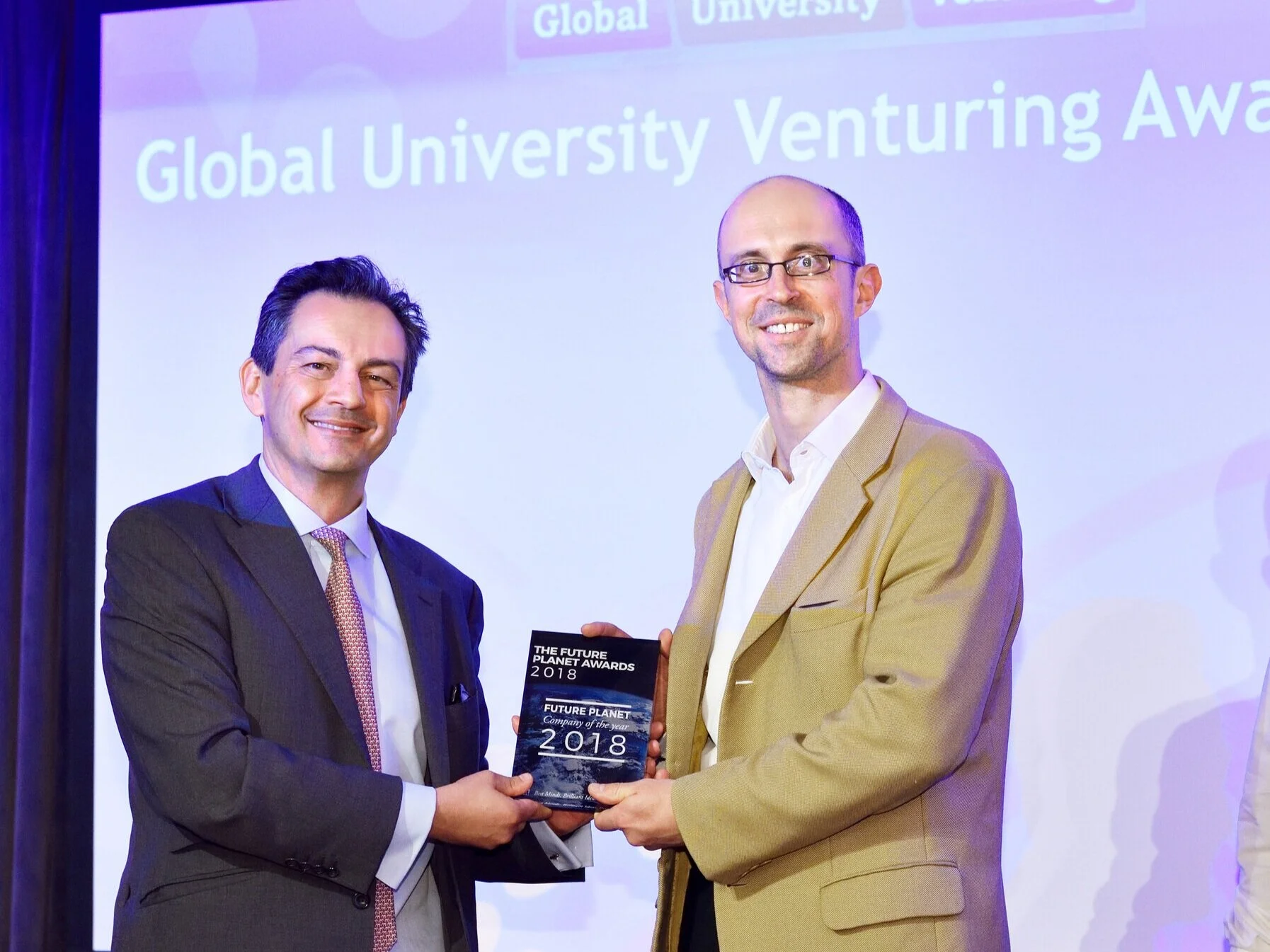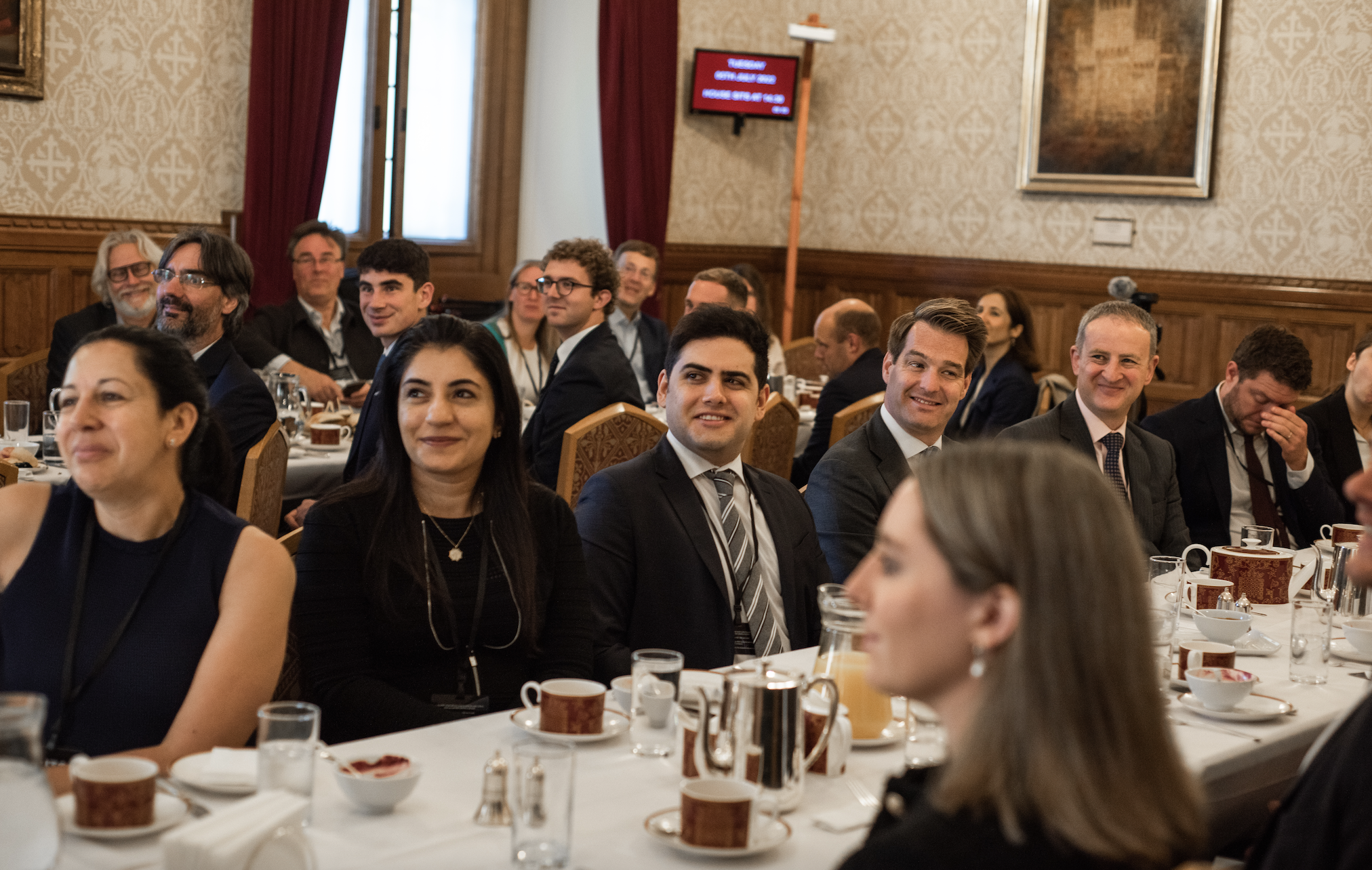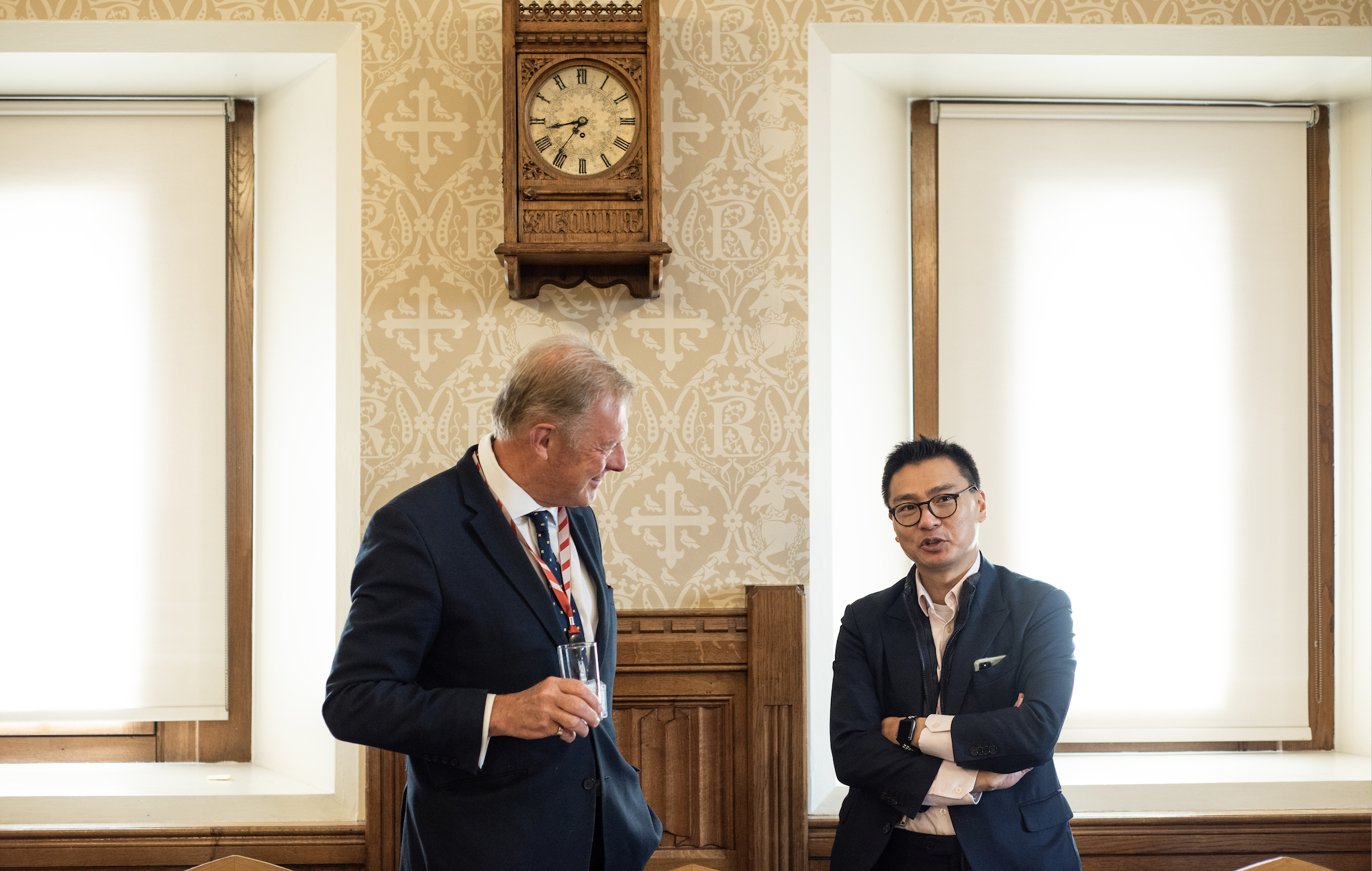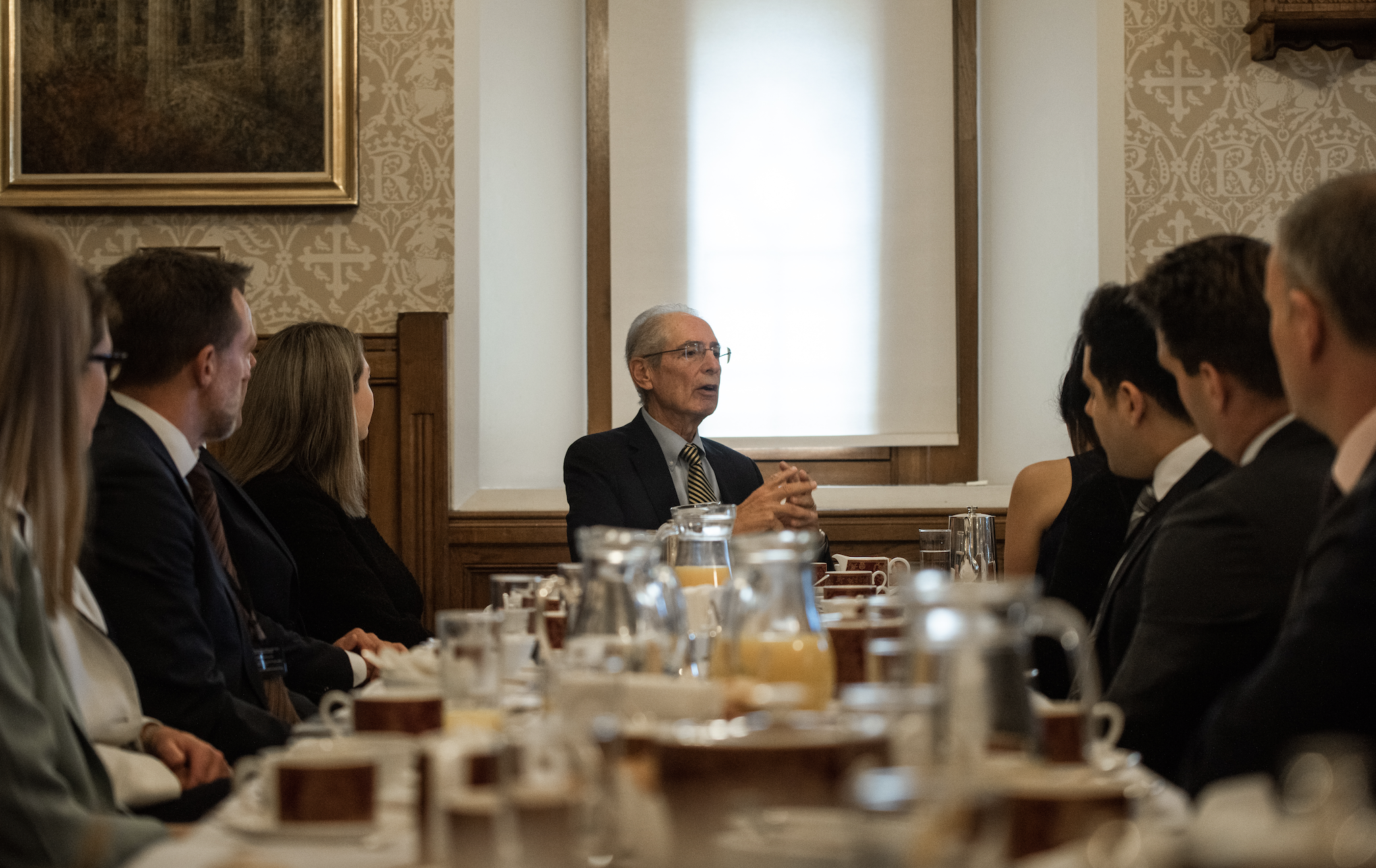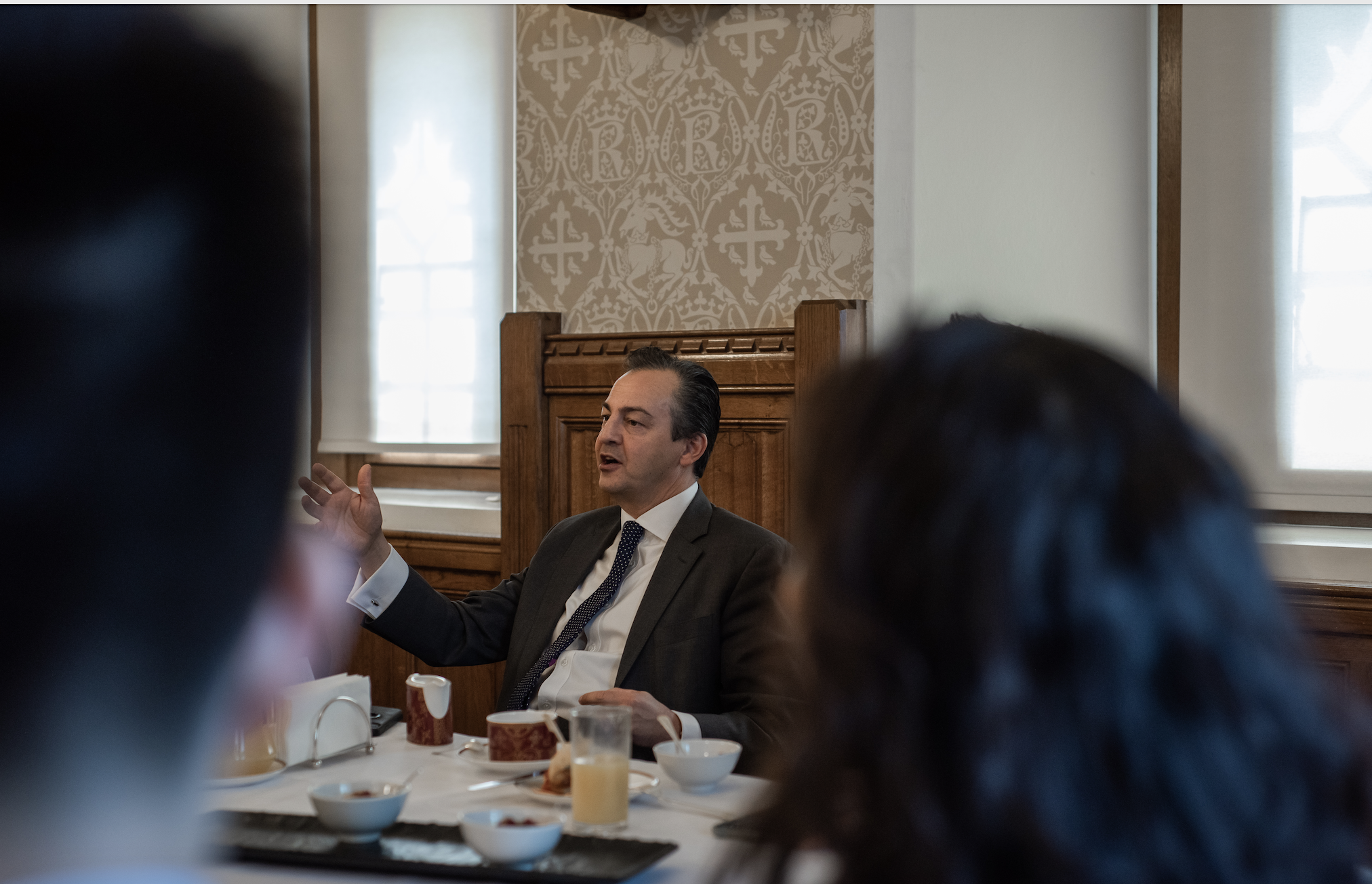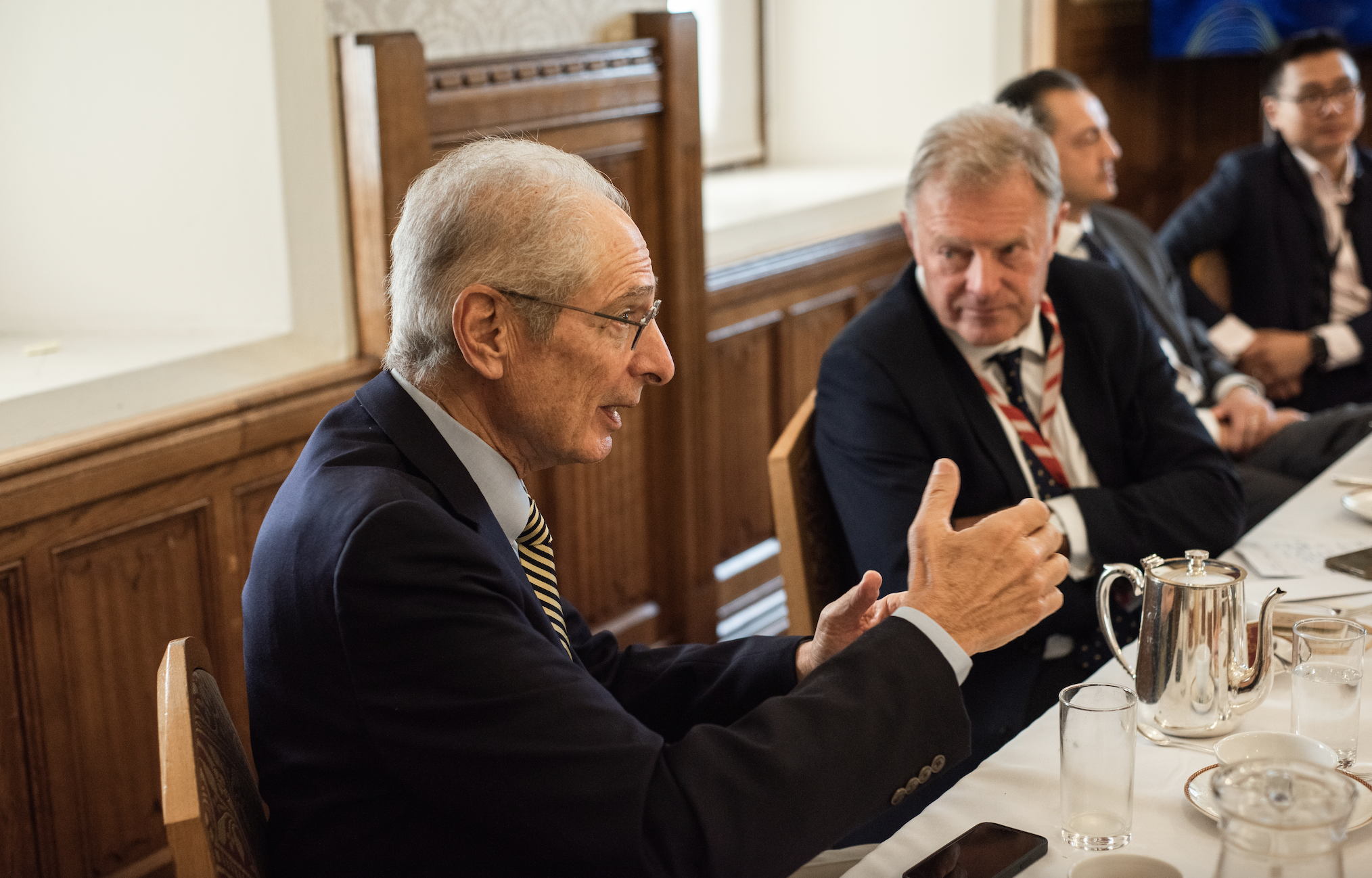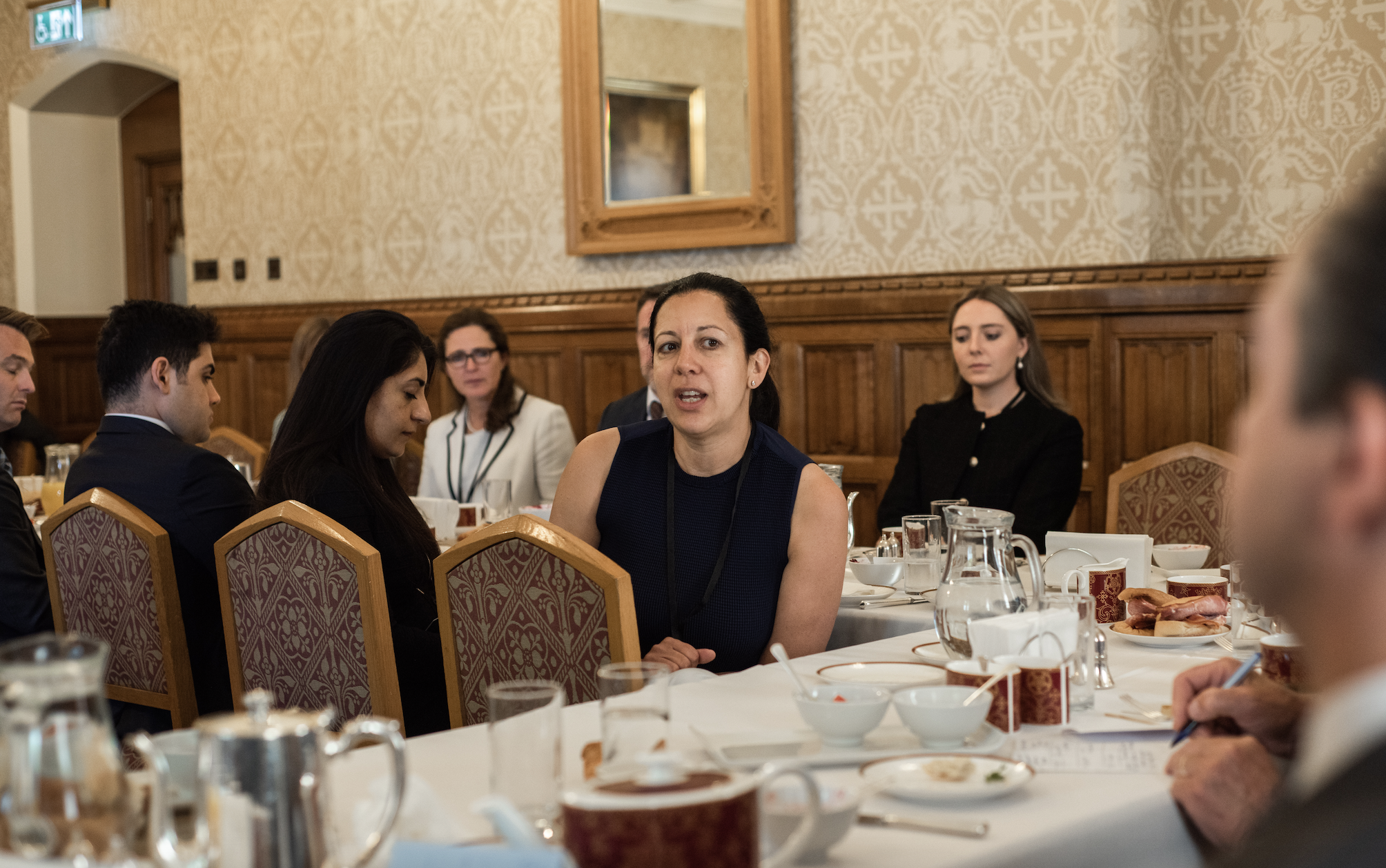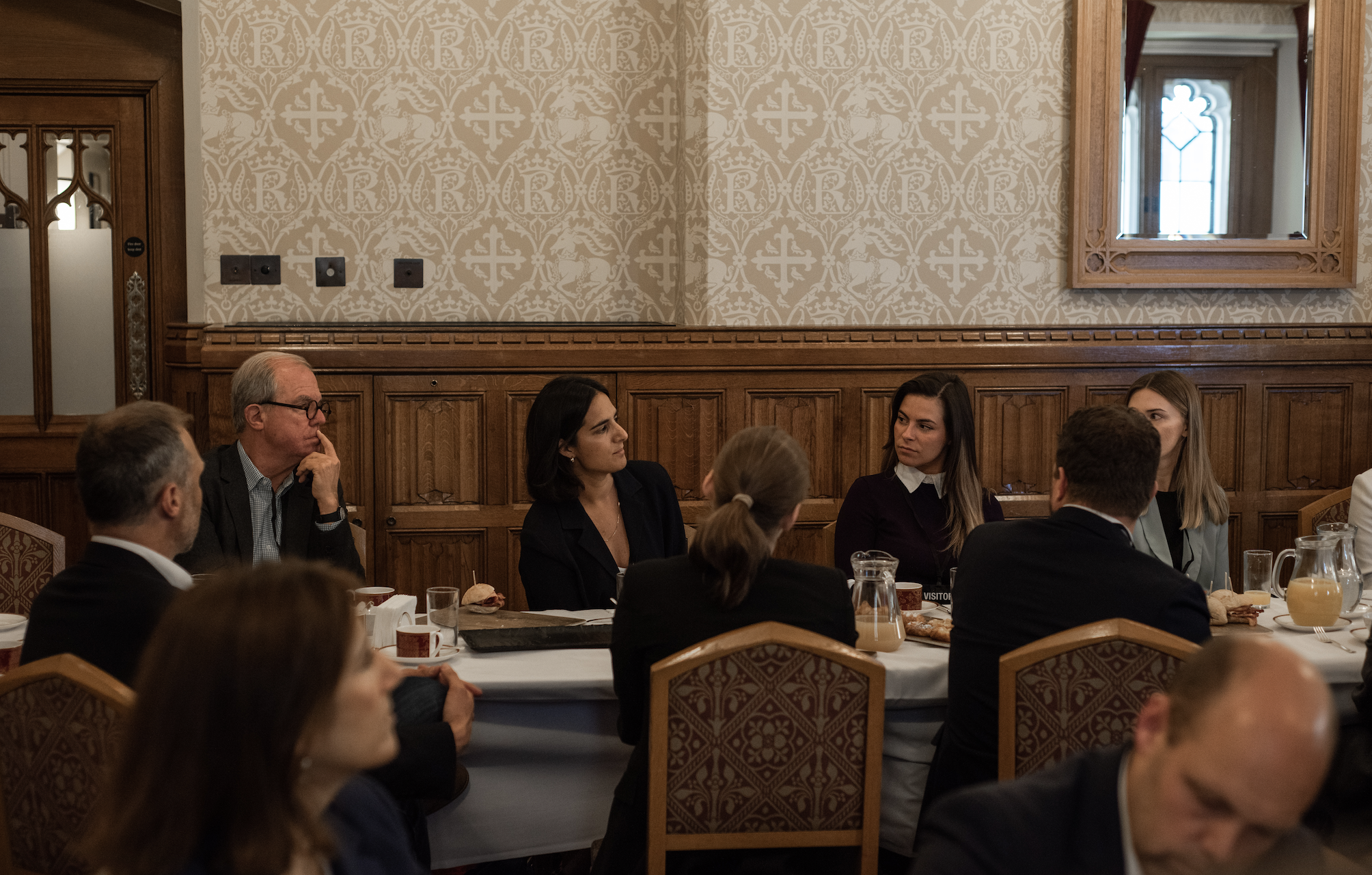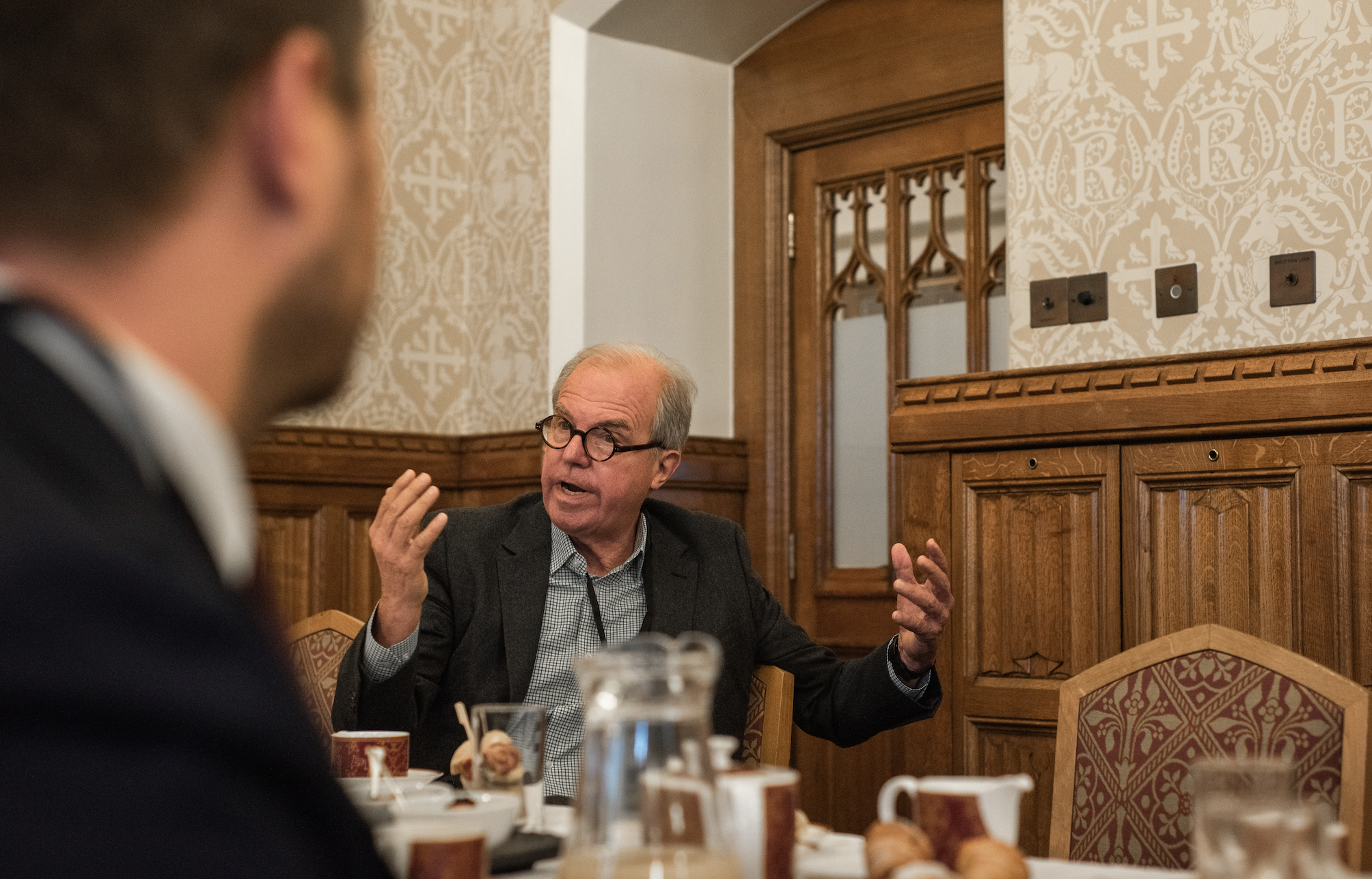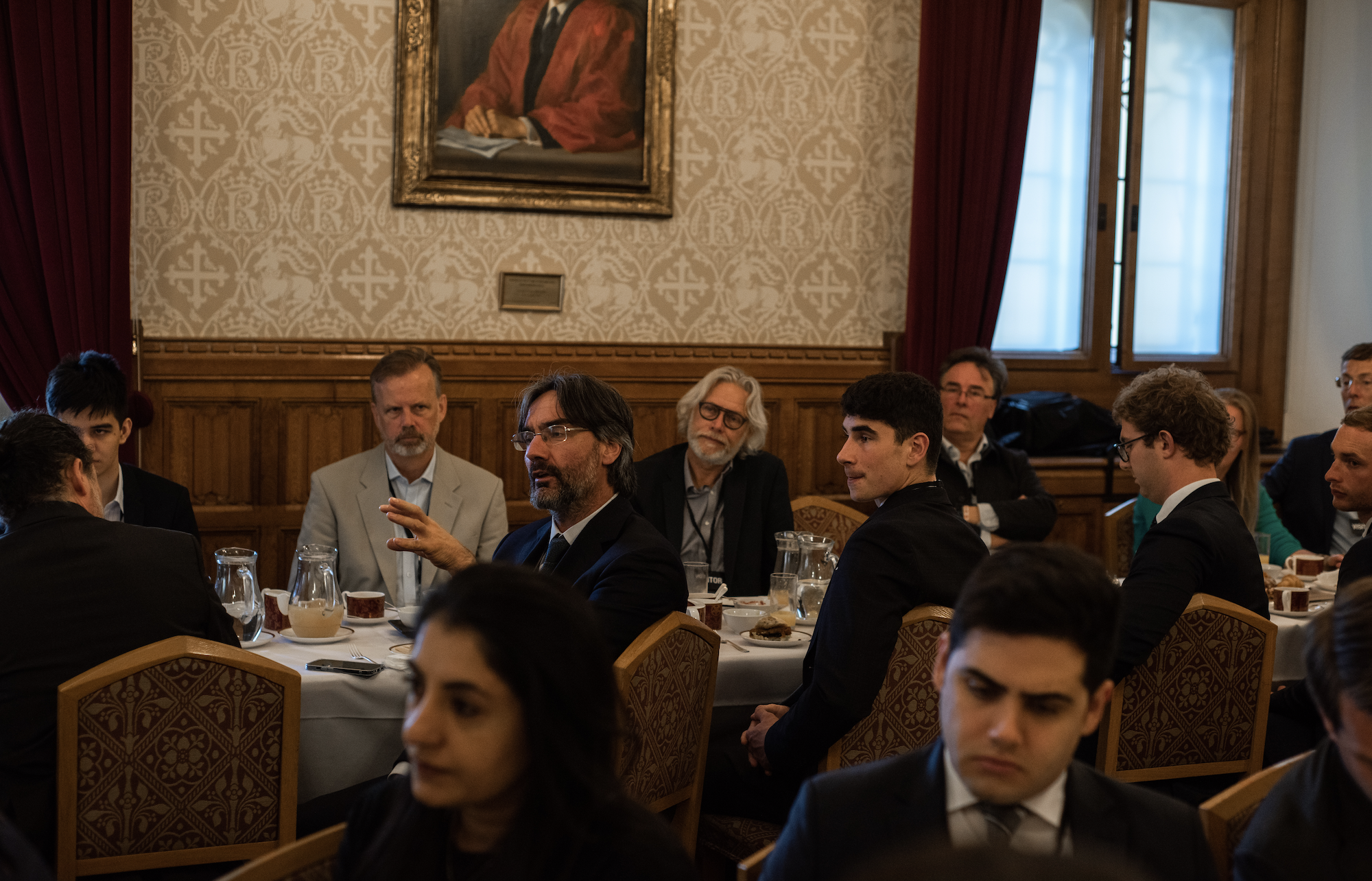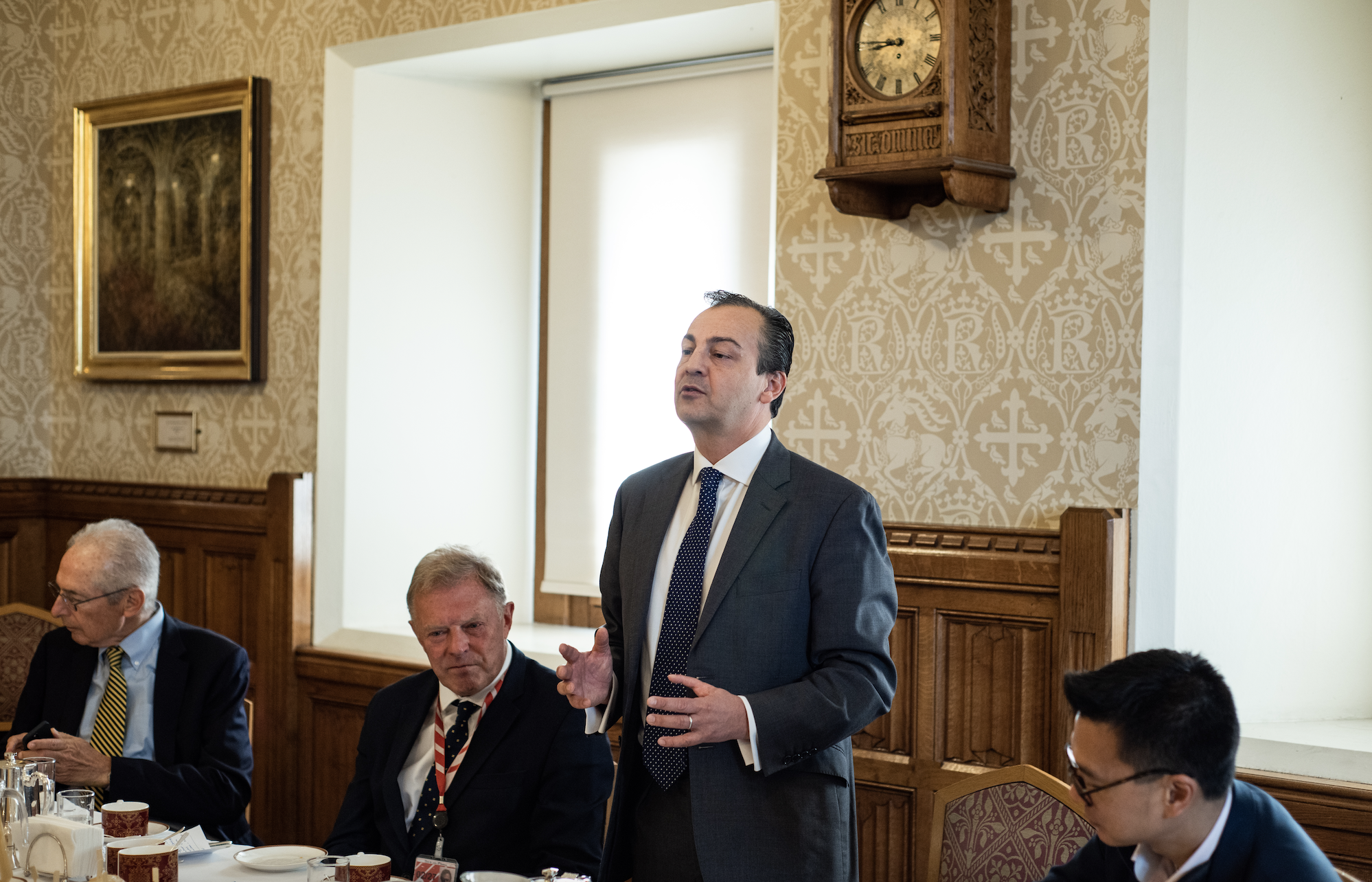|
||||||||||||||||||||||||||||||||||||||||||||||||||||||||||||||||||||||||||||||||||||||||||||||||||||||||||||||||||||||||||||||||||||||||||||||||||||||||||||||||||||||||||||||||||||||||||||||||||||||||||||||||||||||||||||||||||||||||||||||||||||||||||||||||||||||||||||||||||||||||||||||||||
Future Thinking: Defence & Security
|
||||||||||||||||||||||||||||||||||||||||||||||||||||||||||||||||||||||||||||||||||||||||||||||||||||||||||||||||||||||||||||||||||||||||||||||||||||||||||||||||
Future Thinking: Supply Chain Security
|
||||||||||||||||||||||||||||||||||||||||||||||||||||||||||||||||||||||||||||||||||||||||||||||||||||||||||||||||||||||||||||||||||||||||||||||||||||||||||||||||||||||||||||||||||||||||||||||||||||||||||||||||||||||||||||||||||||||||||||||||||||
Future Thinking: What lessons can we learn from COVID-19?
|
Future Thinking: The Nexus of Innovation and Global Health
|
Future Thinking: The Next Generation Healthcare
|
Lord Wei and Future Planet Capital call for global shake up of investment rules in new report
The Wei Forward Report II, which launches today, curates industry and academic insight from leading investors, regulators, policy makers and thought leaders, providing recommendations as to how best encourage capital allocation to impactful solutions for global issues. The research was led by the Conservative Peer, Lord Wei of Shoreditch, and his research was commissioned by Future Planet Capital, the impact-led global university venture capital firm.
The Wei Forward Report II is based on extensive research and interviews with a wide cross-section of industry participants and experts. Leading VC investors, pension funds, insurers, sovereign wealth funds, policy makers and academics have all contributed to the report, the second in a series of three.
“Our latest report takes the reforms set out by the government in Edinburgh even further and suggests ways in which investors, regulators and governments can upskill, collaborate and make impactful investments. A tougher funding environment means we have to raise our ambition higher than ever and demand more of investors.”
The findings come after the UK government announced the Edinburgh Reforms, a substantial package of policy initiatives aimed at making the UK’s financial services sector more globally competitive, sustainable, and technologically advanced.
The Wei Forward Report backs the reforms, viewing them as a golden opportunity to bring down regulatory barriers to innovation and competitiveness in financial services, which are currently holding back institutional investors – such as pension funds and insurers – from pursuing fixing long-term problems with private capital.
By calling for a radical rethink of the impactful investing policy framework, the Wei Forward Report II provides a range of recommendations to accelerate the commercialisation of innovative science and technology-based solutions to environmental and social challenges. The recommendations seek to capitalise on Prime Minister’s Rishi Sunak’s recent announcement of a £20bn increase in R&D funding for innovations that solve challenges such as energy security and net zero.
“In this report, I very much hope that the solutions advocated by Lord Wei, and many contributing experts, can be quickly studied, evaluated, improved and implemented. Most importantly, this report is a call to action. Our industry, governments, scientists and savers must and need to act now.”
Key recommendations from the Wei Forward Report II include:
A government stimulation of funding from pension funds and insurers, into investments that can solve short-term global issues such as the cost-of-living crisis. The UK’s Local Government Pension Schemes, administering 77 pension funds and serving public servants, represent a powerful source of impact capital for governments determining their governance. It is estimated that if the government matched this 10% impact pledge, it would generate £35 billion of positive impact.
A plan to drive impact investment by encouraging pension funds to require their investment committees to include trustees with a comprehensive and robust knowledge of impact investment. This will transform pension funds from the top down and drive them to always put impact at the heart of their investment strategies.
A new educational programme centring around regulation within the impact space. Emulating the success of the Teach First programme, this proposed scheme will bring individuals with STEM backgrounds into regulatory technology roles.
Calling for Sovereign Wealth Funds to align their investment strategy with positive impact frameworks, by providing a mechanism that underwrites part of the impact-related income of pension funds and insurers. This would ensure that regulators can relax rules such as Solvency II for such purposes, without concerns that this would increase systemic risk.
Encouraging insurers, who are acutely aware of the adverse effects climate change will have on their business models, to set aside profits that can be put into a joint industry-wide foundation established to invest into alternatives such as venture and PE for impact.
“Finance can be a huge force for good, driving impact that changes people’s lives and environments for better – but we need both government and finance to adapt if this impact is to be fully released. This is an important report with key recommendations that are well worth the consideration of institutional investors and government alike.”
The final Wei Forward Report will focus on impact measurement frameworks and will be released in 2023/early 2024.
Future Thinking: The future of Fusion Energy looks bright
|
Climate Change: Can renewables do it all to get to NetZero by 2050?
|
Investing in the blue economy
Investing in the blue economy
By Lyle Pentith, Portfolio Manager
Change is coming to our oceans and not before time. Covering two-thirds of the planet and absorbing over 30% of the CO2 from the atmosphere, they will play a crucial role in addressing the climate crisis. The Ocean Innovators Platform panel that I attended this week at COP27 showed how investors and entrepreneurs are taking on the challenge of building a sustainable, blue economy.
The event, organised by the Prince Albert II of Monaco Foundation, set out how innovation, and how we use our oceans, can drive climate mitigation and adaptation. It showcased both the new solutions and technologies in this area and the investors who are actively tackeling vital issues.
Often, discussions about global warming focus on land use. Deforestation and intensive agriculture go hand in hand with a rapidly increasing population, driving urbanisation and increasing onshore renewable energy development. Scaling up the use of our oceans will help to relieve our reliance on land for energy generation and carbon sinks, mitigating climate change's impact and nourishing marine ecosystems.
The solutions can be incredibly effective. According to the World Economic Forum, we are generating more renewable energy than ever, and the incredible progress in offshore renewable energy technology, such as floating wind and solar farms, is shifting our focus and dependence from land to sea.
These technologies play a pivotal role in reversing years of damage and maintaining our oceans, as well as introducing new ways of utilising this vast resource. It is a rewarding space for investors, and one which will continue to grow, providing substantial profit and ROI.
This work is increasingly appealing to larger institutional investors. Previously considered niche, the ecosystem is now better established and is delivering strong financial performance. Larger funds are being raised with the participation of institutional investors, such as SWFs, banks and CVCs. Barclays, Deutsche Bank and UBS Global Wealth Management’s contribution to the Ocean Innovation Platform demonstrate this.
Future Planet Capital was an early and enthusiastic backer in this space. We are pleased to be contributing our own investment in the blue economy, recently announcing the close of a new €20m Blue Ocean mandate aimed at tackling key issues affecting the world’s oceans in partnership with the Prince Albert II of Monaco Foundation and the Monaco Government. Through this mandate, we are actively addressing one of the greatest challenges faced by our society today – climate change.
The Prince Albert II of Monaco Foundation has developed a successful platform and community to positively serve the blue economy. By partnering with Future Planet Capital and committing its capital, the Foundation sets an example for other institutions by addressing a key global challenge while pursuing a market return.
We’re pleased to share that we have been invited to participate in the Foundation’s next Ocean Innovators Platform event in March next year.
Future Thinking: MIT Solve & FPC Workshop Strategy
|
Xfund’s humanities graduate entrepreneurs – the next generation of success
Xfund’s Humanities Graduate Entrepreneurs – The Next Generation of Success
By Douglas Hansen-Luke, Executive Chairman of Future Planet Capital
Imagine the chief executive of a brilliant new business nurtured at a university, and you probably think of a scientist or medic suddenly transformed into an entrepreneur. For anyone looking to build an investable, high-growth company, it can seem that the best preparation is to study physics, computer science or medicine.
The reality is rather different. Scientist and medic founders play a crucial role for any university investor. The Oxford COVID-19 vaccine, for example, directly resulted from the work of our portfolio company Vaccitech – created by professors Adrian Hill and Dame Sarah Gilbert. Its work contributed to the prevention of over six million deaths in a year.
But these are not the only people who can create businesses that answer big questions and promise significant growth. In fact, in the ‘universe’ of 13,000 university-affiliated enterprises that we track, 80% were founded by alumni of institutions, rather than current academics or scientists.
Many of those founders hold degrees in the humanities – not the sciences – and some are set to make a major impact on the wider world.
New thinking and a new focus
Our focus on these founders is no accident. Too many venture capital firms try to replicate the strategies of the likes of KPCB, A16Z, or Sequoia – chasing a small pool of scientific founders in a small geography. They hope to do as well as the first movers in this field, but many fall victim to the economic rule of diminishing marginal returns. Returns generated across the venture industry tell the story: only 10% of managers match or exceed the mean performance of their peers.
A new strategy is called for, and one of our principal partners in the US – Xfund – is showing what can be achieved with new thinking. It has achieved some of its biggest successes working with humanities students. Take Kensho, the artificial intelligence start up that achieved the world’s largest AI exit in 2018. Its founder, Daniel Nadler, launched the firm while finishing his Harvard PhD not in machine learning, but in economics. His approach to technology is informed by his experience as a published poet. Poetry – he argues – can teach us how to build a better search engine.
The key to Xfund’s success
“That liberal arts founders are spectacular is the hypothesis that we set out to prove,” says Xfund’s Managing Partner, Patrick Chung, who numbers graduates in classics, PPE and art history among his successful founders. “And so far, knock on wood, it’s proving out.”
The idea behind Xfund’s approach is straightforward. The firm targets exceptionally bright students who have emerged from universities that boast long track records of innovation. These founders can access networks and resources associated with their institutions and create real value. The combination of their personal achievements and their universities’ standing gives investors confidence.
Investing in under-represented founders
Thinking differently about where they choose to invest has another important consequence for Xfund. It goes out of its way to seek success among under-represented founders, investing ten times more in female-led companies than the industry norm. Some 58% of their dollars have gone to startups led by women, immigrants, or people of colour.
The approach works. These investments have an enviable record of success, with Anne Wojcicki of 23andMe is their most notable female founder. By investing in humanities students and seeking out under-represented founders they have been able to write the first checks and secure meaningful positions in a stream of winning companies.
The power of university funds
Science-based investors will always be vital to the work of Future Planet Capital. E14 at MIT and Berkeley SkyDeck are crucially important partners to us. Xfund’s approach helps to bring an additional multi-disciplinary mix. Together they allow Future Planet Capital to pursue our own strategy of connecting with early-stage university fund partners, then leveraging the research and value from their offerings.
This way we can follow and curate some of the most exciting companies to emerge from university ecosystems and then invest during their growth stages, at key inflection points where revenues and profits are ready to scale. For us, this diverse range of founders and strategies is the best way to fulfil our vision of funding the brightest minds to profitably address the world’s biggest challenges.
EdTech: Back to School
|
A Better Future Planet: Urgent need to reduce Emissions
|
The Research Programme for The Wei Forward II launched at the House of Lords
At the beginning of the month (5th July), Lord St John of Bletso, FPC Advisory Board Member, Lord Wei, FPC Executive Chairman, Douglas Hansen-Luke, FPC IGB Member Jerry Engel, and a room full of those from the worlds of insurance, pension funds, family offices and university innovation – to name a few – joined forces to launch research programme for the second instalment of the Wei Forward Report.
The breakfast event at the House of Lords was a great success and Douglas was able to use the meeting to update the attendees on the vision behind Future Planet Capital. Jerry, a world leader in entrepreneurship education, venture capital, corporate innovation and regional economic development visiting from San Francisco, also spoke eloquently about the importance of innovation clusters and praised FPC for helping connect such clusters around the world. Jerry also touched on how impact will be a key measurement for investors in the future, particularly as risk increases and investors work towards investments that help reduce systemic risk.
Lord Wei spoke about the success of the initial Wei Forward report, and the lessons learned from the first instalment. This included investigating the mainstreaming of impact and how to tackle the challenges of green-washing. Lord Wei also launched the research programme for the second instalment of the report and called on those in the room to get involved.
The Wei Forward II will conduct more in-depth research into the role of clusters within the innovation ecosystem globally (insurance, sovereigns, pension funds, and others), and will share greater learnings about clusters in geographies including Asia. The second report will also consider how a greater focus on the cost of living will affect key decision makers, as well as highlight impactful solutions that help the planet in ways that are sustainable for all of us.
The breakfast speakers were very well received by those in attendance and much interest was shown in collaborating on the report. Wide ranging questions and discussion took place, including on whether investment was encouraging greater blue sky thinking by affecting the willingness for shared ideas and collaboration; the relative role of measurement and metrics versus a more hands off approach; and inclusion and how the current system does or does not reach all possible entrepreneurs and investors (with Skydeck and MIT Solve getting a special mention for bringing founders into their platforms from around the world).
Lord Wei concluded the meeting by thanking all those in attendance, particularly the panellists and Lord St John of Bletso who kindly hosted the morning.
Now is your chance to get involved - The second instalment of the Wei Forward Report will be drafted over the next 6 months, following a number of roundtables around the world. We very much welcome input and you can learn more or contribute by getting in touch with Jess – j.hill@futureplanetcapital.com.
Meet Dr Steven Chance, the Founder and CEO of Oxford Brain Diagnostics
Meet Dr Steven Chance, the Founder and CEO of Oxford Brain Diagnostics, the company “bridging the gap between life and death”, at the forefront of early stage Alzheimer’s diagnosis technology.
Oxford Brain Diagnostics is an Oxford University spin out that has developed unique algorithms and software, collectively called Cortical Disarray Measurement (CDM) that analyse MRI brain imaging data, giving clinicians, pharmaceutical companies and Biotechs unprecedented insights on a cellular level. The patented technology, utilising over 10 years of research, is used for the early detection of Alzheimer's disease, and also has the ability to track the disease's progression.
Global estimates suggest that 416 million people around the world are on the Alzheimer’s disease continuum, and yet there is currently no reliable way to test for AD, essential for discerning appropriate treatment. Additionally, CDM would give clinical trials the ability to more successfully diagnose and understand the patient cohort, allowing them to reliably determine the efficacy of the drug or treatment.
With their Series A round on the horizon, we spoke to the founder, Dr Steven Chance about his journey developing CDM, founding Oxford Brain Diagnostics and his future plans for the company.
“It sounds quite dramatic, but my decision to develop CDM could be described as an attempt to bridge the gap between life and death. I did my PhD in Oxford, looking at two technologies. One was looking through the microscope at tissues dissected from the brains of people who had died with disease or without disease, looking at the differences on a cellular level. The other was looking at MRI brain scans of the living and analysing in real time the changes within their brains as they were affected by disease. The frustrating gap between these technologies was that the detailed information you can see through the microscope was just not available from MRI scans. I wanted to find a way to gain access to that cellular data within the lifespan of the patient, so we could actually help them.”
OBDs primary commercial objective has always been to provide clinical diagnostics solutions to hospitals, a goal that looks set to become reality as their technology has received FDA Breakthrough Device status, prioritising their application for regulatory approval in the US.
“The Breakthrough Device status means that the FDA has not only recognised the value of the science but it is also validation for the potential of clinical use.”
While they wait for regulatory approval, analysis has already been conducted into the distribution of US hospitals, target states and distribution of the elderly who will be more at risk of neurodegenerative conditions,
Additionally, they are already gaining commercial traction with other clients across the globe.
“I think I’m most proud of having gained really good commercial traction even at this early stage because a lot of R&D companies don’t achieve that. We’ve taken a very proactive approach and have received really good uptake with pharmaceutical companies, in some cases very big pharmaceutical companies paying six figure sums to do exploratory work with us but also we have now progressed to being an endpoint for a Phase 2 AD clinical trial for one of the big Biotech firms in the USA.”
This is “only the beginning” of the potential of the Cortical Disarray Measurement technology. While Oxford Brain Diagnostics are currently focused on dementia, specifically Alzheimer's disease, the technology is applicable to an entire range of neurological diseases. Their pharmaceutical dealings include a platform sale for Parrkinson’s disease and as the company grows, they plan to launch services in conditions such as Multiple Sclerosis.
It hasn’t always been smooth sailing though as Steven elaborates on the challenge of building the perfect team.
“Getting the team together is essential and I brought in a real commercial team that had all the strengths that complement each other - I think that’s a major challenge that had to be overcome quite early on”
“I spent some time pulling together the leadership team in the company. Our Chairman, Andrew Barker has been involved with previous successful Oxford University imaging spin outs, for example, intelligent ultrasound and currently with Brainomix. So he has a lot of experience in this space and understands about the challenges that are faced when selling into hospital systems and so forth with these technologies”
“My Chief Science Officer is Dr Ged Ridgway, he has many years experience really focussed on imaging dementia - it’s his fundamental research area and he’s worked in Cambridge, London, Oxford all previously”
“My Chief Technology Officer, Ian Hardingham actually started a computer game company when he first stepped out of doing computer science at Oxford University, which was successful but he wanted to get into some more serious technology. Coming from that experience of understanding how to get something to work through the internet, across the world, in the cloud - he’s brought all that expertise to our software.”
“Finally, my Chief Commercial Officer, Omar Ehsan, has spent more than 25 years selling into pharma companies so he has really been a lynchpin in terms of gaining that early commercial traction.”
The experience of the Oxford Brain Diagnostics team is what has generated the vital difference between CDM and the other technologies in this space. Specifically Steven emphasises the importance of his research work at the Nuffield Department of Clinical Neurosciences, Oxford University neuropathology lab, spanning over 15 years.
“It’s important to know that Alzheimer’s disease is only a confirmed diagnosis at the post-mortem autopsy stage and it is the neuropathologist that provides that confirmatory assessment; until then, there is only a probable diagnosis - wrong 10%-20% of the time. What we did is we designed a technology built on that post-mortem neuropathology - we worked backwards and brought that process forwards into life. Very few, in fact I don’t think any other technologies out there have that kind of essential foundation.”
“A lot of new methods tend to approach things using AI, feeding MRI scans into machine learning algorithms. We have patented algorithms uniquely designed for this purpose based on the foundations of post-mortem neuropathology. These aren’t concepts that can purely be found or discovered by AI. There just isn’t enough post-mortem MRI data out there in the world for someone to discover the same algorithms or insights using an AI approach. ”
“Other technologies attempt to use the old-fashioned or traditional assessment of looking at brain size and volume which is the typical way people have used MRI scans in the past. As the neurodegenerative process happens at the cellular scale, there must be a huge amount of damage for that to scale up to something you can see as a sort of overall reduction in brain size.”
CDM assesses both the quantity and quality of brain tissue, enabling them to detect early markers and indicators of future change. It also means they have the “resolution to spot the differences in patterns across the brain structure” allowing them to qualify the stage that the patient is at, as well as differentiate between different kinds of dementia such as Alzheimers compared to frontotemporal dementia.
“Many other techniques purely don’t have this capability which is essential for accurate diagnosis and therefore appropriate treatment”
Looking forward, Oxford Brain Diagnostics have clear objectives as they shift into their growth phase.
“We want to achieve regulatory approval which will launch our clinical sales, particularly with the FDA in the United States. We will continue to follow that on with Japan and Europe where we have had, in some cases, surprisingly good traction setting up pilot projects.”
“We want to build on the existing Pharma and Biotech success by continuing those sales and expanding them to other neurodegenerative diseases such as Multiple Sclerosis”
“We want to gain clinical acceptance, so we are establishing pilots with hospitals in Japan, in the US, we also have an NIHR funded project here which is nice additional undiluted funding, helping to establish us within the UK hospital and NHS system”
“In the broader scope, we would look to our philosophy - rethinking brain health - and that is because the technology itself applies not just to neurodegenerative conditions but also potentially to psychiatric conditions, neurodevelopmental conditions, these are things like schizophrenia or autism. I’ve done work in those areas previously and we know we have the data, what's striking is that 25% of the entire world’s population will encounter one of these diseases in the course of their lifespan. We want to tackle this global challenge.”
Global Innovation & Local Action
|
Venture Capital Can Help Protect Our Oceans and Build a Sustainable Blue Economy
The ocean is a key environmental and economic resource that covers more than 70% of our planet. Despite contributing to 100 million people’s livelihoods and sequestering 80% of the world’s carbon, the ocean has been largely neglected by venture investors.
Historically, companies and projects working to protect the ocean were grant funded, but we are witnessing an influx of capital and interest in sustainable blue ocean business, known as the ‘blue economy’. Last year, Future Planet Capital committed $40 billion of capital to climate investing. Now we are seizing an opportunity to be an early adopter in the ocean impact investing space and want to encourage others to do the same.
The Future Planet Capital Blue Ocean fund, launched in February 2022, focuses on three key areas of opportunity within the blue economy: preventing pollution, preserving of marine environments and ecosystems, and sustainable marine productivity. In our investment strategy we focus not only on large financial returns, but compelling companies that make a real difference to people and to the planet. This is what’s known as impact investing.
We see clear opportunities to reduce problems in the ocean such as pollution of fishing stocks by microplastics and “ghost” fishing gear, and also in creating sustainable sources of protein, and improving the health and local economy of coastal habitats and communities through sustainable aquaculture. We also see companies innovating in the long term sequestering of carbon in the ocean, enabling renewable energy or displacing unsustainable shipping practices.
At Future Planet we look beyond simple Environmental, Social and Governance (ESG) to the positive impacts the product or service will have in an upside case. We may measure carbon reduction using a carbon pricing model, for example.
Ukraine, the Covid-19 pandemic fallout and supply chain disruption have led to rising inflation, increasing interest rates and stock market falls, all adding up to significant market uncertainty. We believe this in turn presents significant opportunities for those of us deploying capital to exceptional founders tackling the challenges in health, security and sustainable growth.
Climate change and blue economy impact investing will be well positioned in this market. Investors in this space can find true value by zoning in on the most important issues – reducing greenhouse gas emissions, finding sustainable sources of food, protecting biodiversity and creating energy sources that do not put our lives, or the environment in further danger. Injecting capital in these areas will help improve the health and wellbeing of human populations, reduce harm from the changing climate, and provide long-term financial returns. It’s a win-win.
By Ed Philips & Andy Muir, Future Planet Capital
Solve at MIT 2022: working together to profitably solve Global Challenges
|
Technology: Changing the fight against Cancer
|

